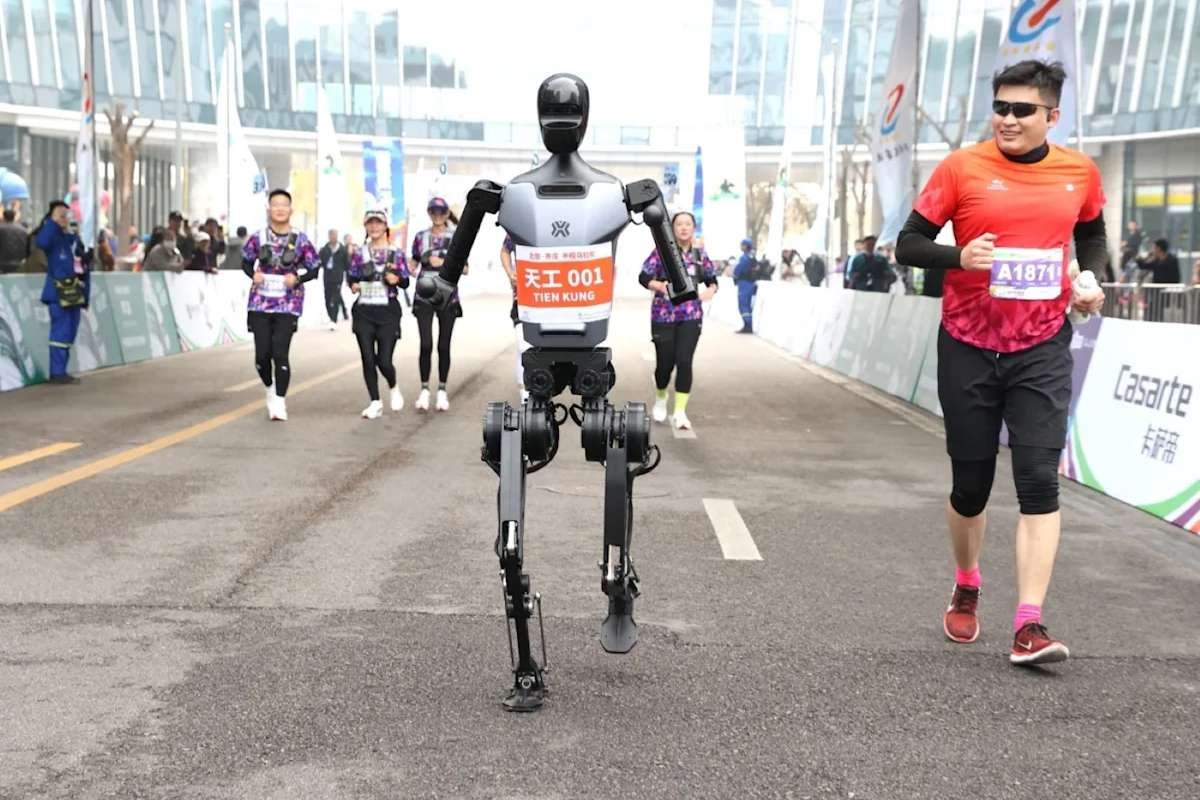Beijing-based startup Noetix Robotics has experienced a dramatic turnaround after one of its robots earned a surprising second-place finish in the world’s first half-marathon for robots. Just months ago, the company was struggling to attract customers and was facing serious concerns about depleting investor funds. Founder Jiang Zheyuan, a 27-year-old dropout from the prestigious Tsinghua University, was uncertain about the startup’s future as its Hobbit-sized N2 models failed to gain traction in the market.
However, the half-marathon achievement changed everything. The global spotlight on the event gave Noetix the breakthrough it desperately needed, transforming the little-known robotics firm into a rising name in China’s rapidly evolving AI and robotics sector. The publicity surrounding the event acted as a validation for the company’s technology and sparked interest from both investors and clients alike.
Growth and Expansion Strategy at Noetix Robotics
Following the race, Noetix Robotics has more than doubled its workforce, growing to 100 employees, half of whom are now operating on a newly established production floor in Beijing. This facility currently manufactures about 10 robots per day, and demand is rising fast. Jiang revealed in a recent interview that the company is projected to deliver approximately 2,000 units by the end of the year.
The momentum has not only boosted production but also reignited investor confidence. Noetix Robotics is currently in discussions to raise around $35 million in fresh funding, aiming for a valuation of $200 million. This valuation would match the total investment the startup has received since its founding in 2023. The increased attention and financial backing position the company to solidify its presence in a competitive industry where innovation and scale are key.
Broader Implications in China’s Robotics Scene
Noetix Robotics’ success comes at a time when China is witnessing a surge in interest in robotics and AI-driven automation. The half-marathon event, along with other initiatives like AI-powered robot soccer matches, highlights the country’s ambition to become a global leader in intelligent robotics. Noetix’s journey from near-obscurity to high visibility underscores the growing role of public performance and competition as catalysts for technological credibility and market momentum.
Industry observers see Noetix’s trajectory as a sign that unconventional platforms such as public races or entertainment-style competitions can serve as powerful launchpads for startups. The startup’s rise also reflects broader investment trends where venture capital firms are backing companies capable of showcasing real-world applications of robotics in novel and visible ways.
As the demand for functional, agile, and affordable robots continues to expand across sectors like logistics, security, and service industries, Noetix’s performance both on the racetrack and in the marketplace may prove to be a bellwether for other emerging robotics firms in China and beyond.










